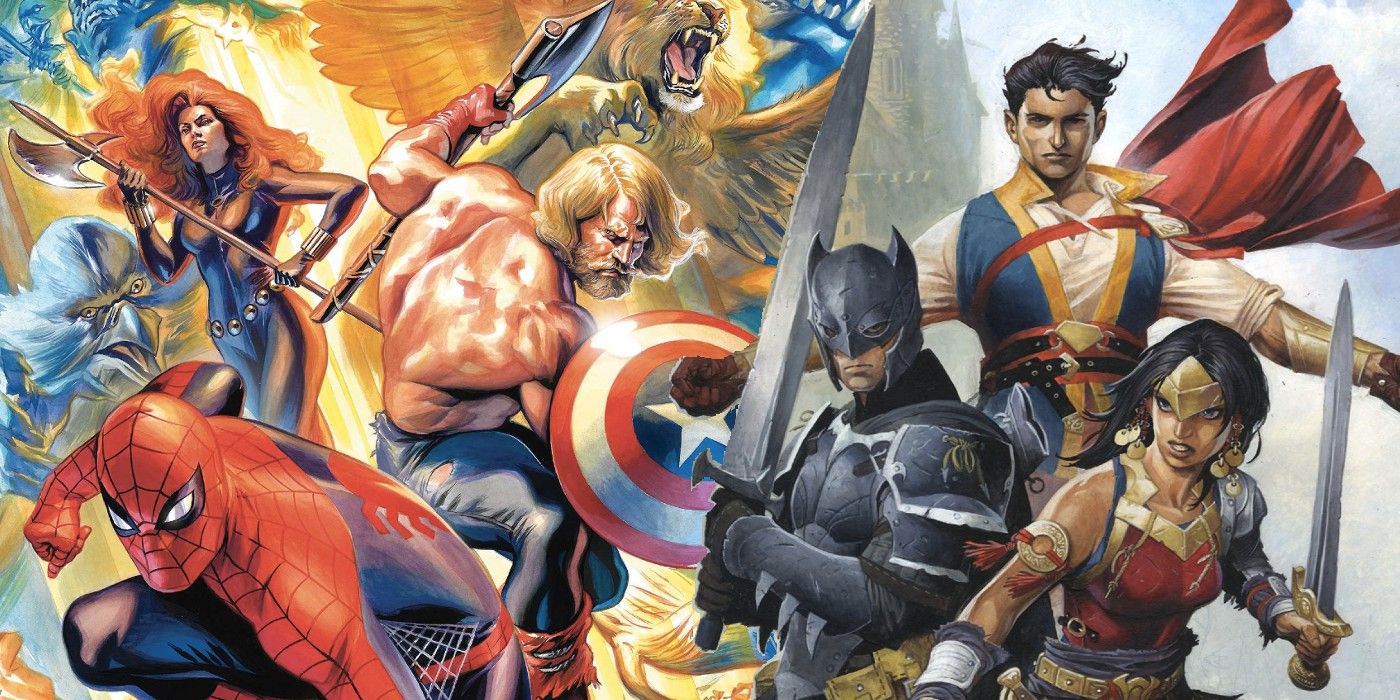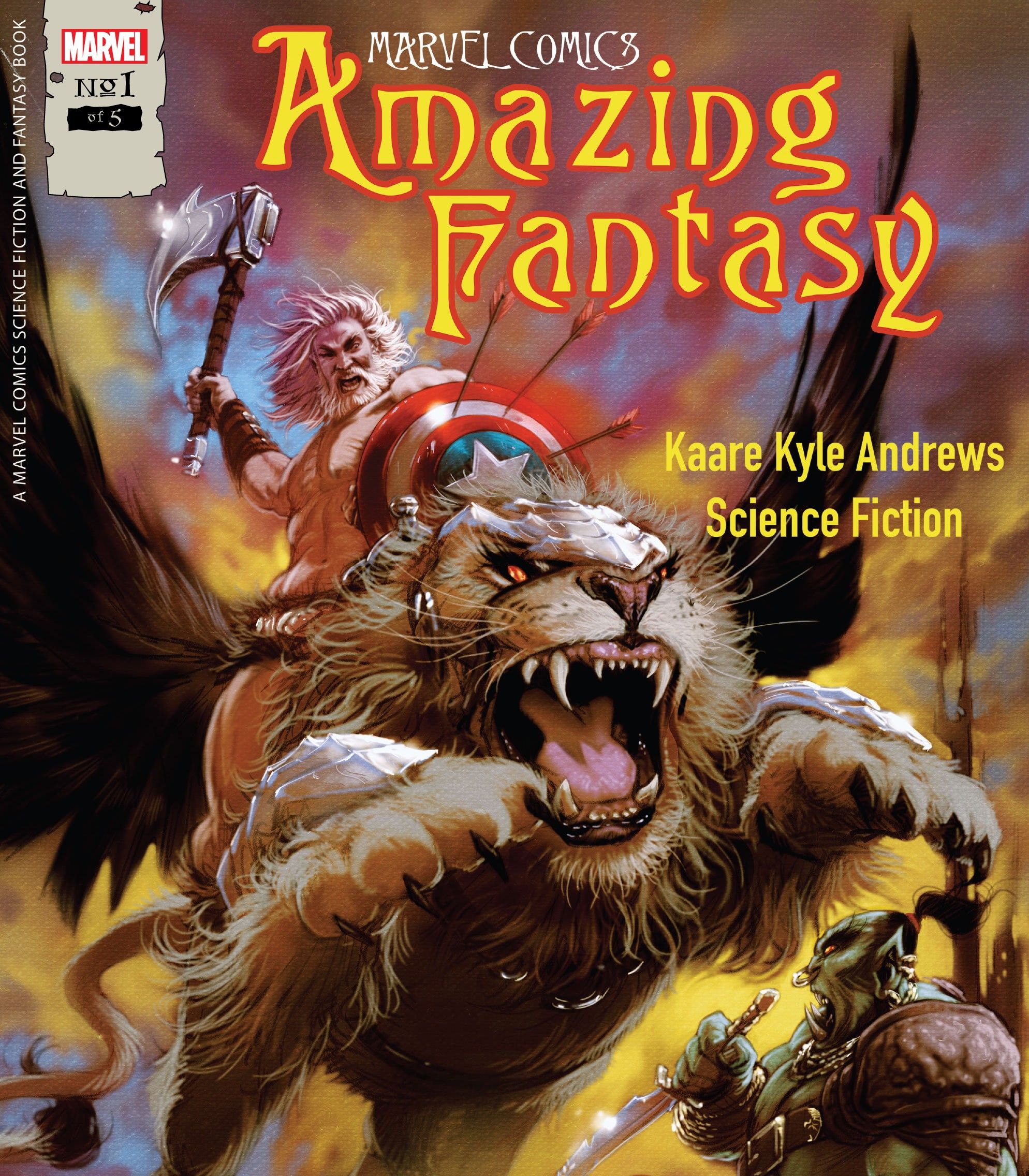As the best-known and best-selling role-playing game in the world, Dungeons & Dragons has had an enormous influence on popular culture, and its impact on Marvel and DC Comics has never been greater. After being around for 47 years, D&D is now at the height of its commercial success, and superheroes are looking at the fantasy genre with growing interest. The game’s latest iteration, 5th edition (5e), has been steadily breaking sales and popularity records since its launch in 2014. In 2018, sales were up 52 percent from the year before. This record was shattered in 2019 and again in 2020, when sales went up 33 percent, making it the game’s most successful year ever, with an estimated 50 million players worldwide, according to D&D publisher Wizards of the Coast.
There are a number of reasons for this seemingly unstoppable growth. 5e’s focus on storytelling rather than complex rules was almost universally acclaimed by players. It didn't hurt that the game was also heavily featured on the hit Netflix series Stranger Things, which helped D&D in gaining renewed recognition with a mainstream audience. Finally, live-streaming of game sessions became more and more popular thanks to the success of shows such as Critical Role, turning D&D from a tabletop game aimed mostly at small groups of people to a fully-fledged entertainment tool that can cross over multiple platforms.
What has all of that to do with superhero comics? The answer lies in this month’s releases, and two titles specifically: Marvel’s Amazing Fantasy and DC’s Dark Knights of Steel. Both comics are set in a classic, high-fantasy scenario, although the blending with the superhero genre is approached in a different way. With Amazing Fantasy by writer and artist Kaare Andrews, Marvel’s re-launch of its classic title (where Spider-Man himself made its debut in 1962) is reminiscent of classic stories where superheroes are stranded in a mysterious land or in a past era. This time however there is a twist: the Marvel heroes are taken from different points in their timelines. Wartime Captain America, early-career Spider-Man, and Soviet-era Black Widow all find themselves on an unknown island crawling with fantasy tropes.
DC, on the other hand, has taken a bolder approach and completely reimagined the origins of its two most iconic characters in a fantasy setting. In the world of Dark Knights of Steel by writer Tom Taylor and artist Yasmine Putri, Jor-El and Lara-El do the one thing that Superman’s readers for 80 years have been wondering why they didn’t do: get in the spaceship with their son. Arriving on Earth in the Middle Ages, they set up a kingdom and strike a friendship with the noble Wayne family, accepting their son Bruce in their household. Batman then becomes this world’s equivalent to a Witcher, traveling the land to kill magical beings, the only real threat to the Kryptonian ruling family.
It is palpable that both major publishers are taking the recent success of the fantasy genre seriously. And it is only natural for them to do so. Superheroes have been rightfully described as an epic for modern times, their connection with ancient myths ranging from subtle to obvious. Fantasy fiction, in all its forms, is also deeply rooted in mythology, so it is only natural that the two genres would interact and inspire each other. Inspiration, however, could easily turn into an outright competition.
Superheroes have been the entertainment sensation of the past decade, with the MCU success spearheading their dominance over different forms of media. The 2020s are perhaps going to be the era of big-budget high fantasy on screen, after Game of Thrones kicked the doors open. A Dungeons & Dragons movie is set to hit theaters in 2023, a D&D TV show is in pre-production, and The Lord of the Rings series will debut on Prime Video in September 2022. While their commercial power is far from exhausted, the time is perhaps right for the superheroes of Marvel and DC to leave the stage open for Dungeons & Dragons to be the next entertainment sensation.


